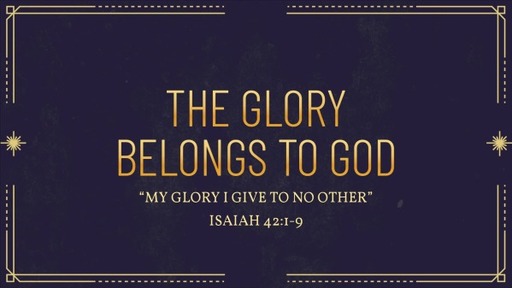The Glory Belongs to God

God’s Glory is His Alone
Nothing is so obviously the absence of something that philosophers cannot even talk about what it is, only about what it is not. But in the most basic categories, nothing is the absence of being. As I’ve said until my congregation is tired of hearing it, if there ever were a time when nothing at all existed, what could possibly exist now? Nothing. But if something exists now, that tells you indisputably that there never was a time when there was nothing—not twelve billon years ago, not eighteen billion years ago, not eighteen trillion years ago.
Everything that we know of, including the universe itself, had a beginning, which means it is contingent, derived, dependent on something outside of itself to lend being to it—except for God. God was not created. There was never a time when He was not. He derived His being not from something before Him or something outside of Him but from Himself. He has the power of being in and of Himself. I wish everybody had a chance to delve into the depths of the inquiries of Western philosophy to explore the concept of being, because there is nothing more profound to say about God than that which He says about Himself when He reveals Himself by the name “I AM WHO I AM” (Ex. 3:14).
